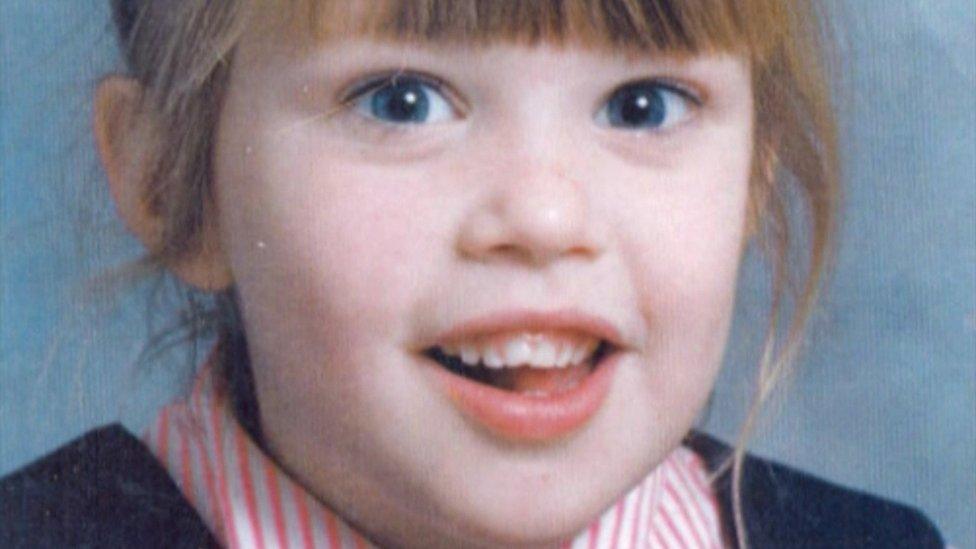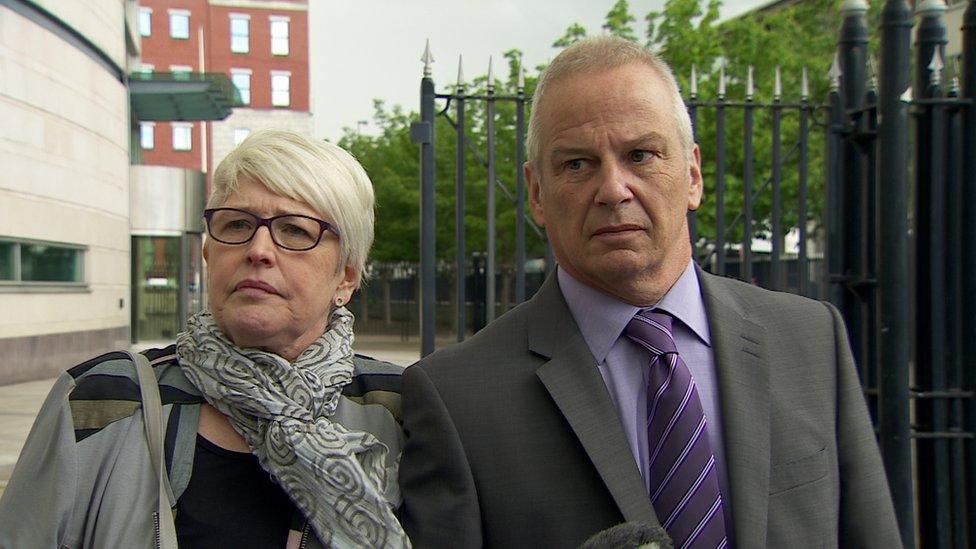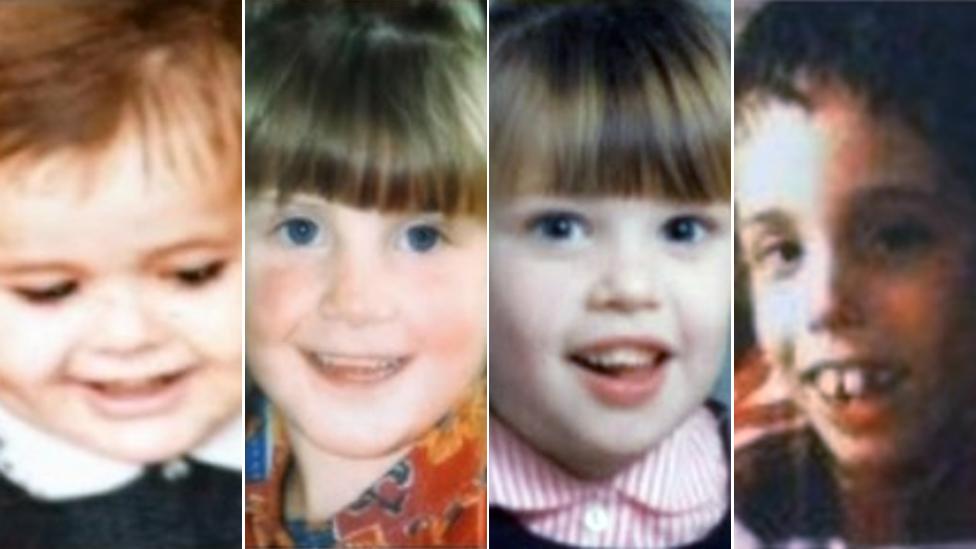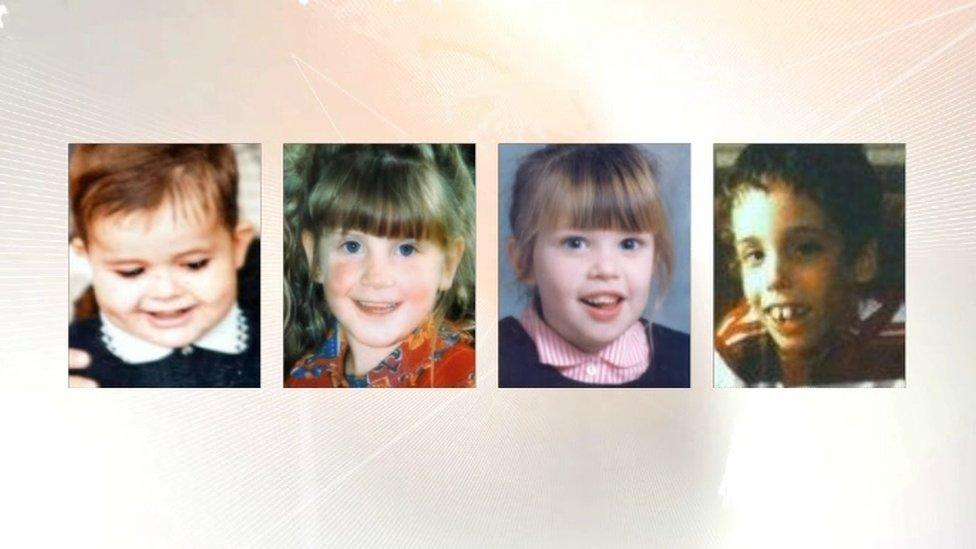Hyponatraemia: Belfast Health Trust criticised by mother
- Published

Nine-year-old Claire Roberts died in the city's Royal Hospital for Sick Children in 1996
The mother of a schoolgirl whose death was examined during the Hyponatraemia Inquiry has described her as "a happy, loving, energetic wee girl".
Claire Roberts' mother Jennifer was speaking at a new inquest into her daughter's death.
Nine-year-old Claire, from east Belfast, died in the city's Royal Hospital for Sick Children in 1996.
Mrs Roberts told the inquest the Belfast Health Trust had shown her family "no empathy" since then.
Her husband Alan said the trust had refused every opportunity to be "open and honest" with their family.
Hyponatraemia is a disorder that occurs during a sodium shortage in the blood.
The new inquest was ordered after the chair of the Hyponatraemia Inquiry said there had been a cover-up to "avoid scrutiny" around Claire's death.
The 14-year inquiry, chaired by Sir John O'Hara QC, examined the treatment of five children who died in Northern Ireland hospitals between 1995 and 2003.
Sir John concluded that four of the deaths were avoidable and said some medical witnesses who were called to give evidence "had to have the truth dragged out of them".
Claire was admitted to the Royal Hospital for Sick Children two days before her death, with symptoms that included vomiting and drowsiness.

Jennifer and Alan Roberts testified at a new inquest into Claire's death
Her death was not referred to the coroner immediately and her parents had never really understood why she had died.
At the opening of the new inquest in Belfast on Monday, coroner Joe McCrisken told the court that the sole focus of it would be how Claire died, by identifying and recording the medical cause of her death.
The inquest has heard from 10 expert medical witnesses over four days of hearings this week.
Among the first to take the witness stand was Prof Keith Cartwright, who told the inquest that since the public inquiry he has changed his mind about the cause of Claire's death.
He stated that while he believed that a viral infection led to her admission to hospital it did not cause her death, which had been his original view given during the inquiry.
Instead of encephalitis, which is a swelling of the brain, he said he now thought that encephalopathy, brain damage or disorder, was the more likely cause of death.
Prof Cartwright said he had come to the new conclusion having re-examined the papers and spoken to other medical experts.
The coroner will deliver his findings on Friday morning.
- Published8 May 2018

- Published31 January 2018
